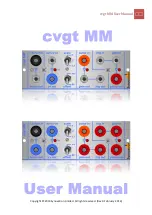
25
Performing
In addition to piano sounds, the HP305/HP302 lets you enjoy performing with many other sounds (over 300 types).
These sounds are called “Tones.” The Tones are divided into four groups, each of which is assigned to a different Tone
button.
Let’s start by performing with a piano tone.
When you turn on the power, the “Grand Piano1” Tone is selected.
fig.Panel
1.
Press the [Piano] button.
The currently selected tone number is shown.
2.
Press the [-] or [+] button.
A different tone is selected.
If you don’t perform any operation for a while, the indication in the display will change to
the following.
Performing with Various Sounds
2
1
About the tones you can select
* For some tones, there are keys that do not produce sound.
* For details on the tones, refer to “Tone List” (p. 78).
Button
Description
[Piano] button
Selects a variety of instruments, including grand pianos, honky-tonk pianos, and historical instruments.
[E. Piano] button
Selects various electric piano sounds used in pop or rock, as well as the sound of instruments played using
mallets.
[Strings] button
Selects the sounds of string instruments such as violins, as well as other instruments used in orchestras,
which are appropriate when used for Dual play with a piano sound.
[Others] button
Selects a variety of sounds such as organ, bass, and GM2 sounds (p. 83).
* If you select a tone number from 35 through 43, the keyboard will act as a drum set.
* If you’ve selected a tone to which the Rotary effect is applied, pressing the [Others] button will change the
modulation speed of the Rotary effect.
HP305_302_e.book 25 ページ 2010年1月5日 火曜日 午後12時2分
Summary of Contents for HP302
Page 87: ...MEMO...
Page 88: ...MEMO...
Page 89: ...MEMO...
Page 91: ...For EU Countries For China...
















































